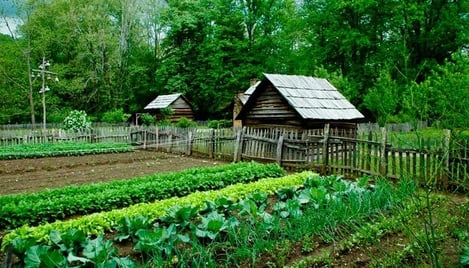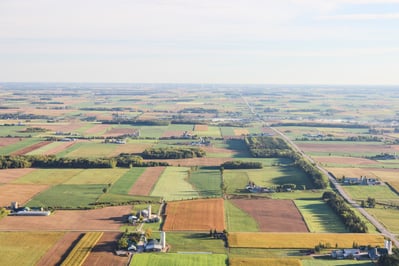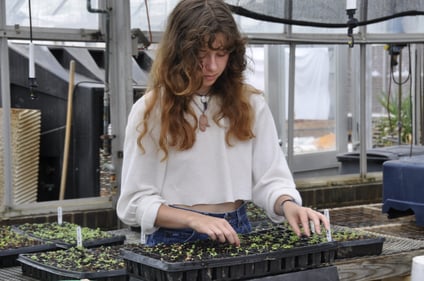One of the most increasingly popular trends in the farming industry is biodynamic agriculture.
What is Biodynamic Agriculture?
Biodynamic agriculture involves rethinking traditional food/wine production methods from a more ecological and ethical point of view as demonstrated in this video.
What is Biodynamic Farming?

Developed by Austrian philosopher Rudolf Steiner (1861-1925), biodynamic farming motivates farmers to view their farmland as a living organism, and to plant & harvest crops based on the lunar and astrological cycles. Some more specific details about biodynamic farming includes the following:
- Biodynamic farms are perceived as self-sustaining entities.
- The central component of these farms is the soil.
- Biodynamic farms attempt to remain as separate as possible from the rest of the surrounding ecosystem.
- They avoid the use of pesticides and fertilizers.
- They recognize livestock, plants, and farmers as equal components that each contribute to a greater whole.
A more in-depth demonstration of how a biodynamic farm functions can be seen in this video.
What Makes Biodynamic Farming Different?
One of the key factors that distinguishes biodynamic farming from others is that this process relies heavily on composting. Biodynamic compost usually consists of recycled animal manures, organic wastes, and stabilized nitrogen, all of which enhances the quality and health of the soil.
Some other elements that help make biodynamic compost more effective include:
- Chamomile
- Dandelion
- Oak Bark
- Nettle
- Yarrow
What Are the Benefits of Biodynamic Farming?
Biodynamic farming produces several positive effects including improving the quality and nutrition of foods/wines, it supports farmers, and is better for the planet.

How Has Biodynamic Farming Impacted the Wine Industry?
According to a 2016 article from Forbes Magazine titled, Why Biodynamic Wine is the Future, author Tom Mullen notes that some of the aspects that continue to increase biodynamic wines popularity is that harmful chemicals aren't involved and this process ultimately produces a much healthier product.
Where Can I Learn More About This Farming Technique?
If you’re interested in learning more about biodynamic agriculture and farming, perhaps you should consider Hocking College’s Agroecology Program. In only four semesters, you could graduate with an Associate of Technical Study in Natural Resources in Agroecology.
What's Agroecology?
Agroecology uses the study of ecology to evaluate the productivity of agricultural systems. This includes the dynamics between technological advances, biophysical interactions, socioeconomic relationships, and the geology/geomorphology of a region.
What Will I Learn in This Program?
Students in Hocking College's Agroecology Program will learn how to employ agroecology principles to support environmental preservation, including preventing the degradation of water, air, soil, and other natural resources. Students will also learn how to apply scientific concepts and practices within the disciplines of biology, chemistry, and geology to methods of sustainable farming and farm management.

The program allows students to use technology and new research to solve complex or changing agricultural
problems, and will teach students how to develop plans to survey, protect, and sustain existing wildlife as well as domestic animals that may be part of the farm.
Laslty, students will learn how to collect, analyze, and evaluate environmental and economical methods of farming in order to design successful and viable farm management plans.
For more information on Hocking College’s Agroecology Program, contact Sasha Sigetic by email at sigetics@hocking.edu or by phone at (740) 753-6283.



